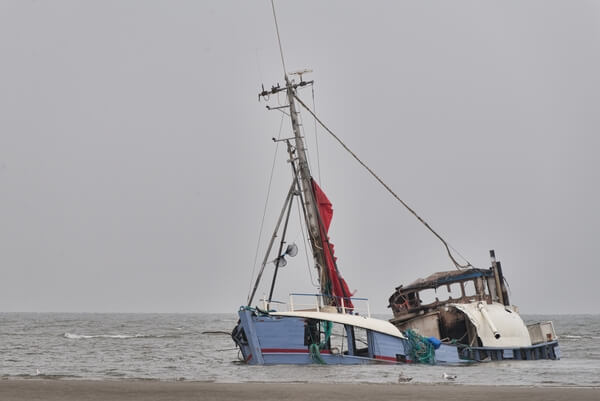Marine Hull Insurance: What It Covers, What It Excludes, and How to Claim

As a boat owner, Hull insurance is your lifeline to stay afloat financially when catastrophe strikes. This comprehensive guide explains everything you need to know about protecting your marine investment.
What Is Marine Hull Insurance?
Marine Hull insurance, often called hull & machinery insurance, provides financial protection against physical damage to a boat’s hull and machinery such as the boat engine or navigation equipment. It covers losses from accidents, natural disasters, theft, vandalism, and other perils while on land or water. Hull policies reimburse repair costs or even replacement value if the vessel is deemed a total loss.
Who Needs Hull Coverage?
Ship Owners
Owners of commercial vessels like cargo ships, oil tankers, and freight carriers require hull insurance to financially protect their significant assets. These large ocean-going vessels can cost tens of millions of dollars and carry expensive cargo.
Repairing damage from storms, groundings, collisions, or mechanical failures could bankrupt a ship owner or company without insurance. They rely on hull coverage to stay financially afloat.
Smaller passenger ships like ferries also need protection. Damaging a vessel critical for public transportation can disrupt commutes and commerce.
Port Authorities
Port authorities oversee harbor infrastructure like piers, terminals, and breakwaters. Their facilities are at risk for collisions and allisions.
Hull insurance also protects port equipment like cranes or storage facilities if damaged by docking ships. Their repair is essential for port operations.
Private & Public Port Operators
Private port management companies and public port agencies need hull coverage. They are liable for safe vessel handling. If piloting negligence by a harbor pilot causes a ship to run aground and break its hull, the port authority is responsible for damages. Hull Insurance protects their bottom line.
Hull insurance also covers damage to piers, breakwaters, and port infrastructure to keep ports operational after accidents.
Key Benefits of Marine Hull Insurance
Financial Security: Hull insurance shields vessel owners from expensive repair bills and potential total loss of their boat. Hull coverage provides funds to repair or replace damaged boats, keeping maritime business afloat.
Regulatory Compliance: Most coastal nations legally require ship owners to carry hull insurance to operate in their waters, ensuring regulatory compliance and mitigating potential legal and financial consequences.
Peace of Mind: Seafaring involves inherent risks like severe storms, rogue waves, congested shipping lanes, and mechanical issues far from shore. Hull insurance provides ship owners the peace of mind knowing their marine investment is secured.
What Does Marine Hull Insurance Cover?
- Collisions, allisions (striking a fixed object), groundings, and sinkings
- Severe weather like windstorms, hurricanes, hail, lightning, and floods
- Swamping from large waves
- Impact with floating or submerged objects
- Fire, theft, and burglary
- Explosions, vandalism, theft, and other criminal acts
- Mechanical breakdowns like engine failure
- Electrical problems, failed navigation instruments
- Damage during hauling, docking, storage, and maintenance
- Third-party liability for damage caused by the insured vessel
What Is Not Included in Marine Hull Insurance?
- Gradual wear and tear over time, such as corrosion, fouling, and deterioration
- Mechanical breakdowns and electrical failures due to lack of maintenance
- Damage from war, chemical/biological/nuclear sources, and terrorism
- Overloading cargo
- Alcohol-related damages
- Intentional damages, not considering weather warnings, and illegal activities
The Claim Settlement Process for Marine Hull Insurance
- Document the damage with photographs/video.
- Report the incident to the insurance provider immediately and file a claim. Note down the reference number and keep it handy.
- Provide the policy number and details on what happened.
- Keep receipts of emergency repairs.
- Cooperate with the insurance provider by providing necessary details and documents required.
- An insurance adjuster/surveyor will assess the damage and the vessel condition.
- Submit required documents
- Get compensation once the claim is approved.
Documents to Submit for Marine Hull Insurance Claims
- A properly filled claim form
- The hull policy copy
- Engine and deck room logbook
- Proof of ownership of the vessel
- Incident report with detailed description of the vessel damage or loss
- Police report if the incident involves theft, vandalism, or a criminal act
- Repair/replacement receipts or estimates
- Drydocking receipts
- Survey reports and photos
- Any additional documents
With Hull Insurance, You Can Weather Any Storm.
Like a sturdy anchor, hull insurance provides a sense of security when navigating through unpredictable waters. Don’t leave the dock without reviewing coverage options with a marine insurance specialist.
At New Age Insurance Brokers, we can help find the right marine hull insurance policy to safeguard your vessel from the perils of the sea. For any queries on marine hull insurance, please call +971 4 3573378 or write to us at info@newageib.com.
Smooth sailing ahead!



